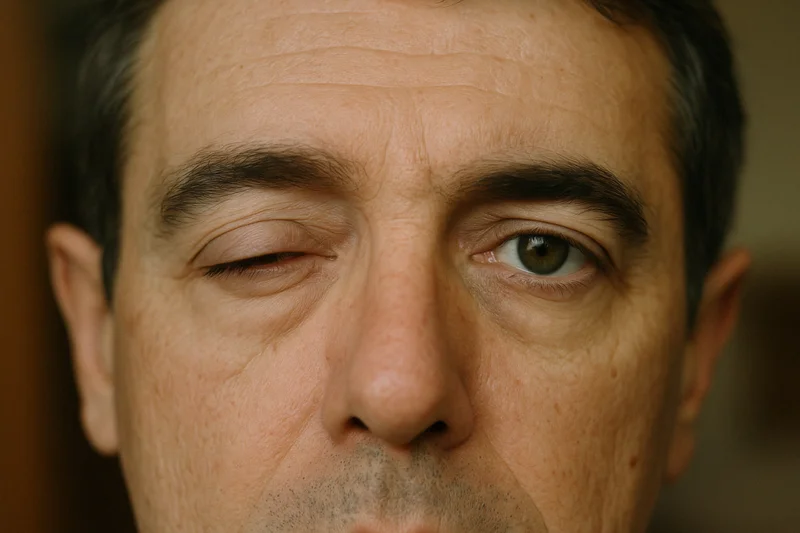Myasthenia Gravis Ayurvedic Treatment: A Holistic Approach to Managing Neuromuscular Healt

Myasthenia Gravis (MG) is a chronic autoimmune disorder that affects neuromuscular function, leading to weakness in skeletal muscles. While modern medicine focuses on immunosuppressants and symptomatic relief, Ayurveda offers natural remedies to manage this condition holistically. This article explores Ayurvedic treatments for Myasthenia Gravis, emphasizing their potential to enhance quality of life by addressing the root cause of the disease.
Understanding Myasthenia Gravis in Ayurveda
In Ayurveda, Myasthenia Gravis can be correlated to imbalances in Vata Dosha and Ojas depletion. Vata governs movement and neuromuscular coordination, and its imbalance can lead to muscle weakness and fatigue. Ayurveda emphasizes restoring balance to Vata and strengthening the immune system through dietary, herbal, and lifestyle interventions.
Don't wait or self medicate. Start chat with Doctor NOW
Ayurvedic Remedies for Myasthenia Gravis
1. Herbal Formulations
Certain Ayurvedic herbs are renowned for their ability to strengthen muscles, improve nerve function, and modulate the immune response. Key herbs include:
-
Ashwagandha (Withania somnifera): Known as an adaptogen, Ashwagandha reduces stress, strengthens muscles, and enhances stamina. It’s especially beneficial for addressing muscle fatigue associated with Myasthenia Gravis.
-
Shatavari (Asparagus racemosus): This rejuvenating herb nourishes the body, promotes vitality, and helps balance Vata and Pitta Doshas.
-
Guduchi (Tinospora cordifolia): Guduchi is a powerful immunomodulator that enhances immunity and reduces inflammation.
-
Bala (Sida cordifolia): Bala is revered for its ability to strengthen muscles and improve neuromuscular coordination.
2. Ayurvedic Oils and Massages
-
Abhyanga (Oil Massage): Regular massages using medicated oils like Mahanarayan Taila or Dhanwantharam Taila can improve circulation, nourish muscles, and alleviate stiffness.
-
Shirodhara: A calming therapy that involves pouring medicated oil on the forehead to reduce stress and improve overall neurological health.
3. Panchakarma Therapies
Panchakarma, the Ayurvedic detoxification process, can help remove toxins and restore balance. Key therapies include:
-
Basti (Medicated Enema): Especially beneficial for balancing Vata Dosha.
-
Nasya (Nasal Therapy): Clears toxins from the head and improves nerve function.
Dietary Guidelines for Myasthenia Gravis
A balanced diet plays a pivotal role in Ayurvedic treatment for Myasthenia Gravis. Foods that pacify Vata and boost immunity are recommended:
-
Include: Warm, cooked meals; ghee; milk; almonds; sesame seeds; and seasonal fruits.
-
Avoid: Cold, dry, and processed foods; excessive caffeine; and carbonated drinks.
Yoga and Lifestyle Changes
1. Yoga Poses
Gentle yoga poses can improve flexibility, strength, and energy levels. Recommended poses include:
-
Child’s Pose (Balasana)
-
Cat-Cow Stretch (Marjariasana)
-
Cobra Pose (Bhujangasana)
2. Pranayama (Breathing Exercises)
-
Practice breathing techniques like Anulom Vilom (alternate nostril breathing) and Bhramari (humming bee breath) to enhance respiratory function and reduce stress.
3. Stress Management
Stress exacerbates autoimmune conditions like Myasthenia Gravis. Meditation, mindfulness, and relaxation techniques can help manage stress effectively.
Benefits of Ayurvedic Treatment for Myasthenia Gravis
-
Enhances muscle strength and coordination
-
Reduces fatigue and improves energy levels
-
Boosts immunity and overall health
-
Promotes long-term management of symptoms
Conclusion
While Myasthenia Gravis is a challenging condition, Ayurvedic treatment offers a comprehensive approach to managing symptoms and improving quality of life. By addressing the root cause and restoring balance, Ayurveda helps patients achieve holistic wellness. Always consult an experienced Ayurvedic practitioner to design a personalized treatment plan tailored to your specific needs.
Take charge of your neuromuscular health naturally with Ayurveda
Got any more questions?
Ask Ayurvedic doctor a question and get a consultation online on the problem of your concern in a free or paid mode.
More than 2,000 experienced doctors work and wait for your questions on our site and help users to solve their health problems every day.

